If there’s one thing that can instantly ruin your day, it’s waking up in the morning to greasy hair. Oily hair feels gross, and it can make your hair appear dull, lifeless, and weighted. When the goal is a volumized, fluffy, soft look, grease can be a real downer.
While some hair is more susceptible to greasiness than others, we all have to deal with it at some point. Learning why your hair is greasy every morning can be the first step in finding your ideal solution.
Here’s Why Hair Gets Greasy Overnight
So, why does hair get greasy overnight? There are different reasons why you might be waking up with oily greasy hair in the morning, despite having just washed it the night before. Take a look at the most common possible culprits below.
You Touch Your Hair Too Much

Excess oil in your hair can come from your hands. If you play with your hair throughout the day, adjusting it or running your fingers through it, you can deposit extra amounts of dirt and oils from your hands into your hair. This causes it to get dirty quicker.
You’re Not Washing It Properly
Washing your hair is about more than just shampooing the strands. A good wash involves massaging shampoo deep into the scalp to clean its surface of oils, dirt, sweat, and other air pollutants. If you’re not washing your scalp, you’re not washing your hair properly.
Additionally, it’s crucial to completely wash out all of the products you use during your shower. Be sure to completely rinse out both your shampoo and conditioner, both of which can cause your hair to feel greasy and dirty if even a small amount is left behind.
Washing in Hot Water
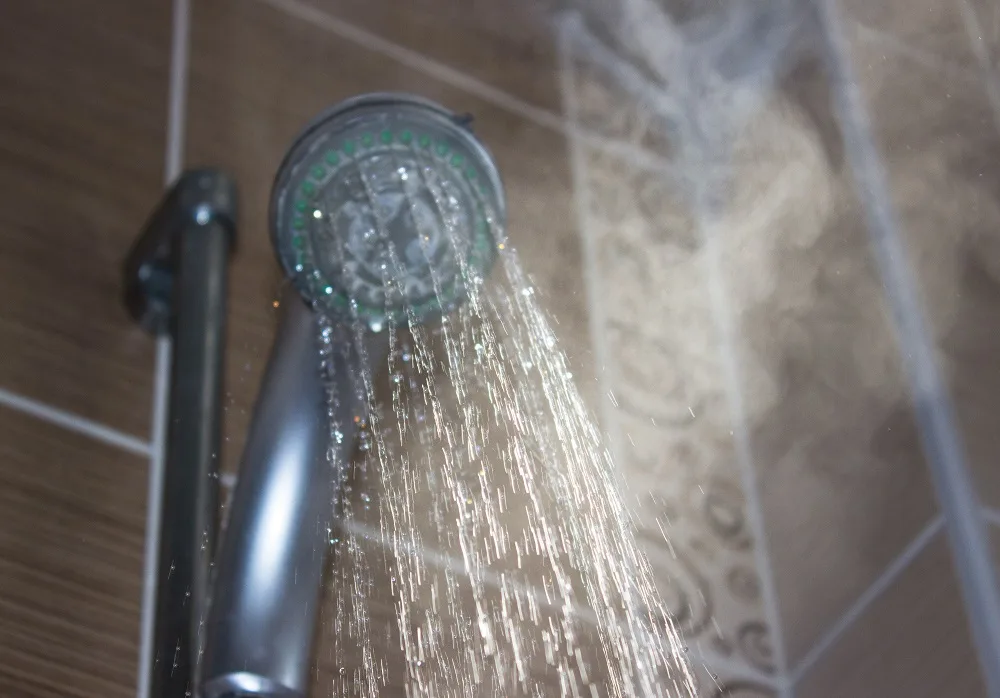
Something as simple as a hot shower could be the reason your hair feels greasy in the morning. As great as the hot water feels on our skin, it might irritate your scalp and make it feel inflamed and itchy. As a result, your scalp will produce extra oil to soothe it.
Learn The Differences Between Dry, Oily, and Normal Hair
You Have Overactive Sebaceous Glands
If you find that your hair gets oily very quickly, such as overnight, you might have overactive sebaceous glands on your scalp. Your sebaceous glands are responsible for secreting oil onto the skin to keep it moisturized and flexible.
But sometimes, our glands can produce too much oil, including on the scalp. You may naturally create more oil than others, but excess oil can also be due to conditions like seborrheic dermatitis, scalp psoriasis, and Malassezia.
Dirty Pillowcase
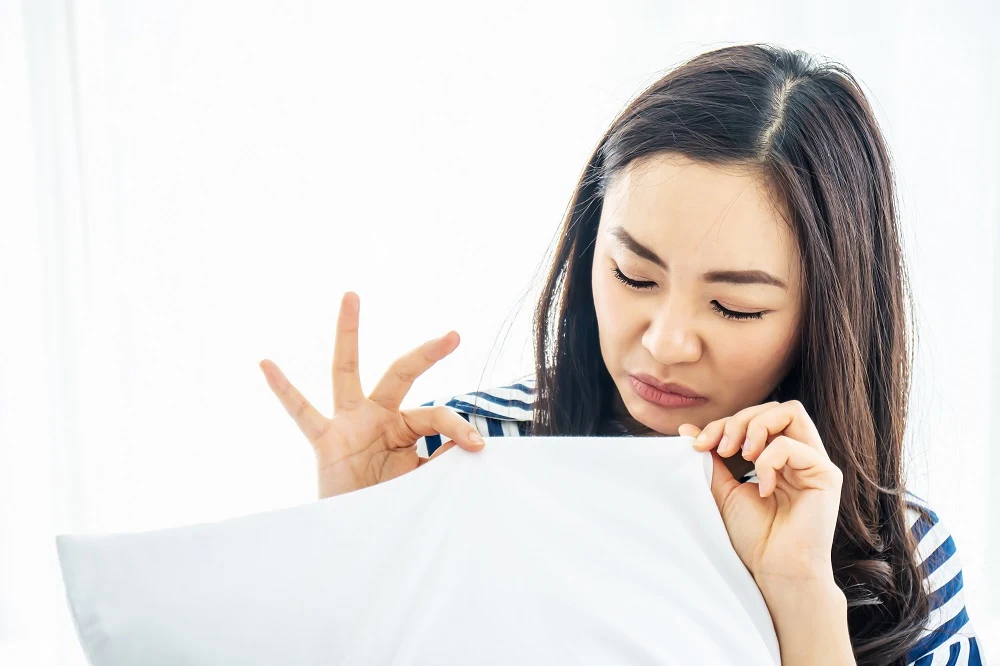
If you’re not changing your pillowcase at least once per week, it might be to blame for your hair to turn greasy. Every night, your face and head come into contact with your pillow. As you sleep, things like oil, dead skin cells, dirt, sweat, and drool spread over your pillowcase.
Not only can a dirty pillowcase impact your hair, but it can also cause acne. Be sure to swap your pillowcases once a week and wash them with natural laundry detergents to avoid irritating your skin and scalp.
Hormone Imbalance
Your greasy hair may be a sign of a hormonal imbalance. Your hormones are the body’s chemical messengers that play a role in your overall health. When you have too much or too little of a hormone, it can cause a ripple effect that impacts areas of your body.
One indication of a hormonal imbalance is an issue with skin or hair. An imbalance can increase sweat and sebum production, both of which can cause oily hair. It can also eventually lead to hair loss, so it’s a good idea to get things checked out by a doctor or dermatologist sooner rather than later.
Poor Diet
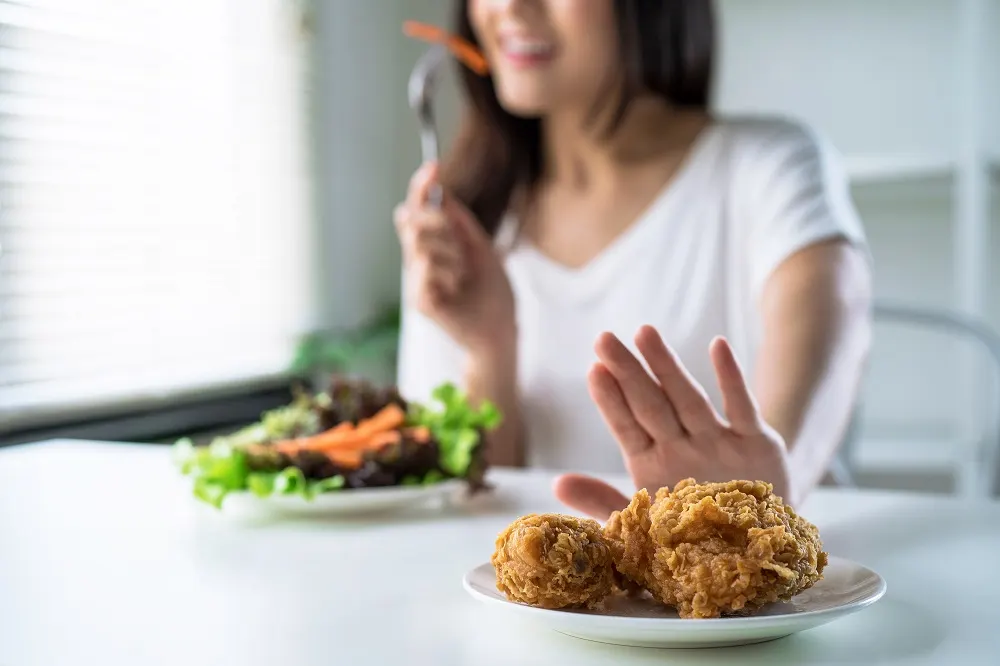
Your diet dictates how your body functions regularly. Eating a poor diet can make you gain or lose weight, feel fatigued, upset your digestion, and much more. It can also have an impact on how greasy your hair gets.
For many people, food groups like dairy, salt, saturated and trans fats, and red meat can cause excess oil production in the skin. Take a look at your diet and make sure you have a good balance of fruits and vegetables to replace some of those sebum triggers.
How To Prevent Hair from Getting Greasy So Fast
You may have identified your problem in the list above, but now you need a solution. Check out these quick tips that may help you prevent your hair from getting greasy so fast.
Don’t Over-Brush Your Hair
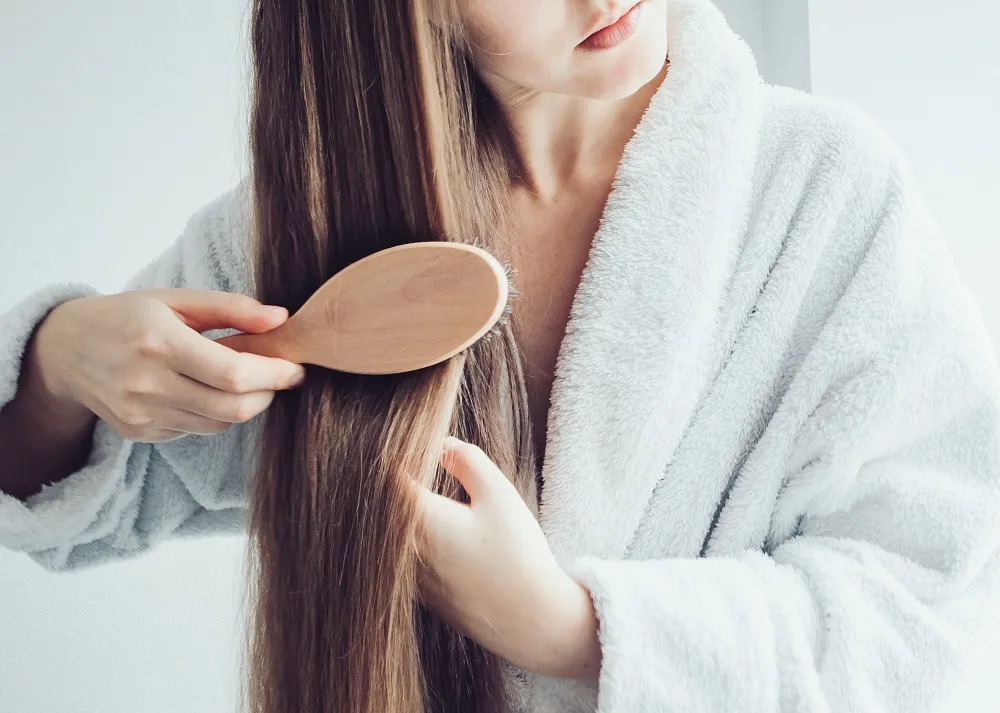
Brushing your hair distributes your hair’s natural oils. Spreading out the oil is good in moderation, but brushing your hair too often will just result in greasy hair. Try to only brush your hair once or twice a day.
Don’t Shampoo Every Day
This first tip seems counterintuitive. After all, shampoo is what gets rid of grease, dirt, and oil, right? While washing your hair is important, doing so every single day can strip your hair of the natural nutrients and oils that your scalp provides.
Everyday washing can lead to dry, damaged, dull hair. Plus, it forces your scalp to over-produce its oils, which can ultimately make your hair greasier.
Use Shampoo Designed for Greasy Hair
No matter what your hair type is, it’s always important to reach for products that are free from sulfates and parabens. You should aim for shampoos and conditioners that are as clean as possible because they allow your hair to do its natural work.
If you have naturally greasy hair, look for products that aim at solving this issue while keeping an eye on the ingredients list.
Only Use Conditioner on Your Ends
Using conditioner on your roots can over-produce oils because conditioners are very moisturizing. Instead, use it only on the lower half of your hair down to your ends.
Apply Dry Shampoo
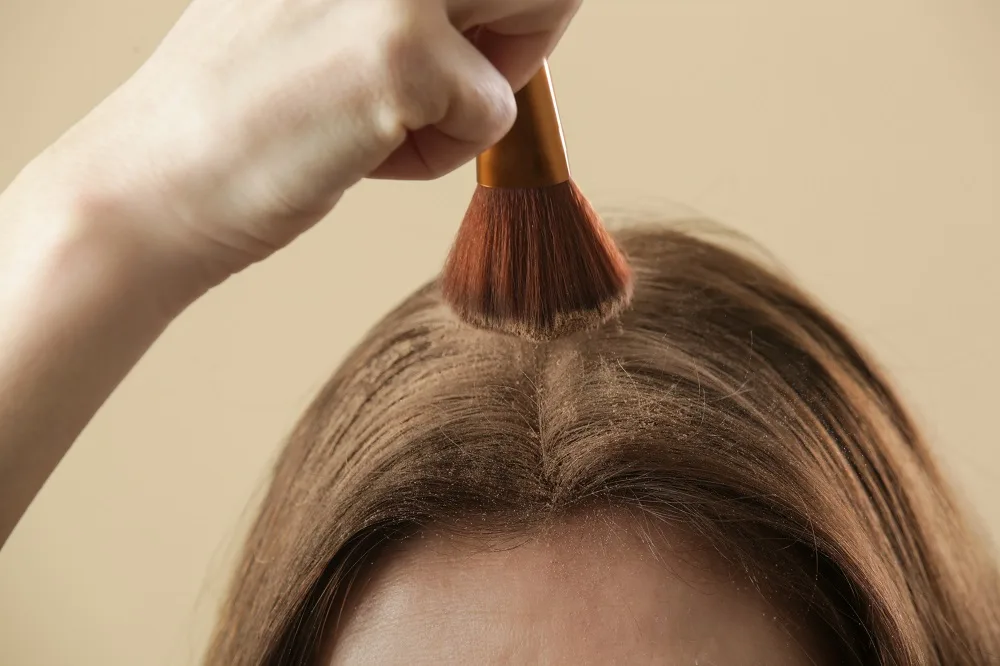
Sometimes you can do everything right, and your hair still feels greasy. If nature is against you on this one, you can always add dry shampoo to your repertoire.
Dry shampoo is perfect for absorbing oils, grease, and sweat from your hair. While it won’t clean your hair, it will extend the life of your last wash and refresh the look of your hair before your next shampoo.
Final Thoughts
Let’s face it: greasy hair is unattractive and hard to work with. But by learning more about your hair type, adjusting some habits, and using the right products, you can combat hair grease for a fabulous, lasting look.
FAQs
Here are some of the most common questions regarding greasy hair.
If your hair is naturally oily and produces more oil than others, you can wash your hair every day. Anyone with hair that produces a fair amount of oil can wash their hair every two to three days.
You should wash straight, wavy, and thin hair more often than curly and coarse hair. Textured hair produces the least amount of oil and should only be washed once a week.
Active people who work out regularly and produce sweat should wash their hair more frequently, regardless of hair type. The sweat and grease can cause bacteria to build up on your scalp if it is not washed.
Yes, the food you eat can impact the health of your hair. The skin on your scalp is the same as on your face. Diets high in refined carbohydrates and saturated fats increase your skin’s oil production and can cause greasy skin.
Eating a balanced, healthy diet will reduce oil production.
Not really. Greasiness is not the sole cause of hair loss, but it can contribute to any loss of hair. The excess oil leads to a buildup of dirt that clogs your pores. This can prevent hair growth and cause your hair to thin. Thinning hair and the inability to grow hair lead to hair loss.
Hair types differ and do influence hair grease. Straight, wavy, and thin hair textures are typically rich in moisture. The oil moves to the hair shaft at a faster rate and produces more oil regularly.
Oil does not move as quickly on curly, coarse, and thick hair and is drier than on straight, wavy, or thin hair. Tight curls and textured hair produce the least amount of oil.
A specific number on the scale is not the cause of greasy hair, but issues with your weight may impact the health of your hair. Stress from a certain diet, dietary changes, and weight gain/loss can increase oil production on your scalp.
Possibly. Some experts believe genetics is a factor for greasy hair in some people. People born with a specific hair type or imbalanced hormone levels are prone to greasier hair.
Yes, you do not need to give up the use of conditioner when your hair is greasy. Conditioner is essential to prevent dull, frizzy hair. You should apply conditioner to the ends of your hair, not at the roots.
To reduce the appearance of greasiness, condition the bottom half of your hair down to the tips and be sure to rinse entirely.
Yes. Stress and hormonal imbalance can increase the production of oil. This leads to oily skin and hair. Imbalanced hormones cause overactive sebaceous glands and are a common problem during pregnancy and menstruation.
More Related Topics
